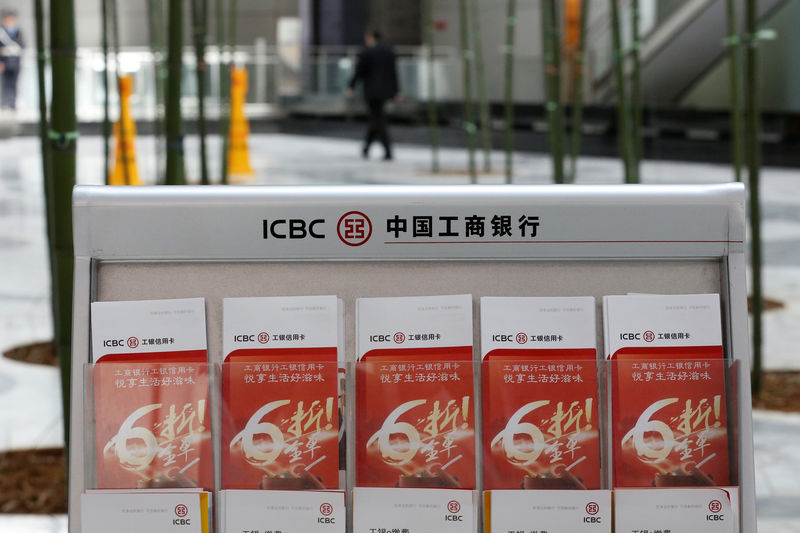By Nathaniel Taplin and Samuel Shen
SHANGHAI (Reuters) - A dispute between investors and the underwriter of a bond issued by Evergreen Industries is showing up regulatory failings that need fixing if China is to sustain newly robust inflows of foreign capital into local bonds.
As China's economy slows and its currency weakens under pressure from domestic capital flight, policymakers have opened up the country's corporate bond markets to foreign investors to help keep credit flowing.
Foreign holdings of onshore Chinese bonds rose by a record 40.9 billion yuan ($6.12 billion) in June, data from China's main bond clearinghouse show, surpassing the flow into bonds from commercial bank wealth management products for the first time since the height of the equity bubble in May 2015.
Foreigners still own less than 2 percent of China's bond market, but these rising flows could stall if investors, already nervous about yuan depreciation, fear unruly defaults.
In the past, failing firms were nearly always bailed out, usually with the assistance of local governments, so bondholders got their money in the end.
But with over 20 defaults so far in 2016, it is a much more dangerous market, and insiders say China's regulatory structure has failed to keep up.
Holders of the Evergreen Industries Holding Group Ltd bond, now in default, claim that underwriter Industrial and Commercial Bank of China (ICBC) <601398.SS> shirked due diligence and disclosure requirements, and ignored the conflict of interests inherent in its own separate loan to Evergreen.
Evergreen bondholders are taking their concerns directly to regulators, who have participated in meetings between the bondholders and ICBC, setting up the conflict as a potential test case on China's underwriting laws.
ICBC declined to comment, but an official involved with the case said current rules, which require underwriters to "urge" issuers to disclose problems as they arise and protect bondholders' interests, were manifestly unclear.
"Whether we have fulfilled our responsibilities to 'urge' them, you need a judge to decide that," the employee added.
China's bond markets are overseen by three different regulators, all with different rules, many of which have yet to be tested in court. And penalties for malfeasance are low in the interbank markets, where most bonds trade.
"In the interbank market, the penalty is often just several hundred thousand yuan of fines, and some oral reprimand," said an Evergreen investor.
WILD WEST
Insiders say rapid market growth - total bond debt in China is up over 50 percent in the past 18 months to 57 trillion yuan, equal to around 80 percent of GDP - has created a "Wild West" atmosphere where underwriters and rating agencies operate with little accountability and issuers pick the market where the rules suit them best.
In January, Reuters reported that newly liberalized issuance rules had resulted in a flood of high-yielding private placement bonds onto the Shanghai exchange, undermining government efforts to police risks in other areas, such as shadow banking.
"(Underwriters) can take advantage of the vague rules and regulations, and choose to interpret to their advantage and skirt responsibilities," says an Evergreen bondholder. "If it goes on like this, who will dare to invest? How can the bond market be prosperous?"
Evergreen bondholders are pursuing their case with the National Association of Financial Markets Institutional Investors (NAFMII), which regulates commercial paper like the Evergreen issue.
ICBC and the bondholders met as recently as this week, but have still not resolved their dispute.
NAFMII did not return requests for comment.
Market insiders say potential conflicts of interest, where underwriting banks hold information on issuers they can use to protect their loans ahead of bondholders' interests, are common. Evergreen bondholders say ICBC has declined to say if its loan to Evergreen was repaid.
"When the regulators designed the system, they didn't realize there might be a conflict of interest between banks' own loan books and their underwriting business," said a Hong Kong-based employee at an international ratings agency, who regularly meets with both underwriters and issuers on the mainland.
Nonetheless, with defaults accelerating and many more cases like Evergreen's expected, policymakers are becoming more active.
On June 21, NAFMII suspended Chinese accountants Ruihua for one year for irregularities related to the January default of logistics firm Yunfeng. And a week later the People's Bank of China, which declined comment for this article, said it would support investors' efforts to hold financial intermediaries legally accountable for lapses.
Investors say they want a much stronger, clearer and court-tested regulatory framework before they widen their exposure to Chinese corporates.
Jie Peng at Western Asset Management in Singapore, which invests in Chinese debt, said for now she was limiting investment to AAA-rated credit and top-tier state-owned enterprises.
"The legal system will definitely become a concern if we move down the credit curve," she said.
